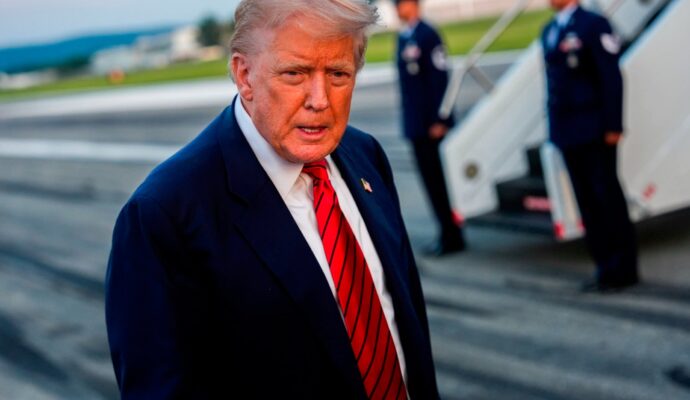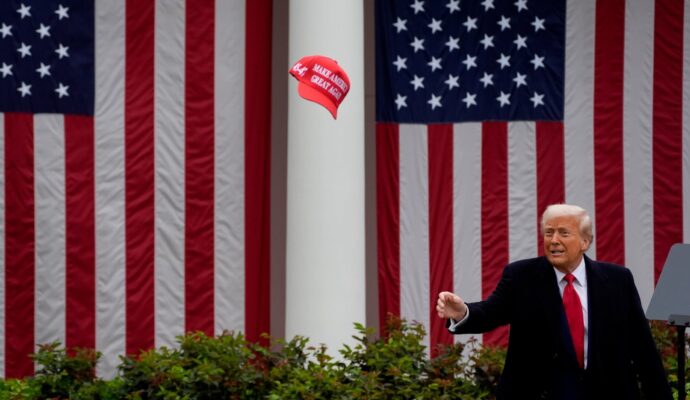Stay informed with free updates
Simply sign up to the Chinese economy myFT Digest — delivered directly to your inbox.
China said it will cut its benchmark interest rate and reduce the amount of money banks need to hold as reserves, offering support for the economy in the face of a trade war with the US.
China will lower banks’ reserve requirement ratio by 0.5 percentage points and cut several key interest rates to release Rmb1tn ($138bn) of long-term liquidity into the banking system, according to Pan Gongsheng, governor of the People’s Bank of China.
Pan, speaking at a Wednesday news conference alongside officials from two other financial regulatory agencies, said the central bank would cut the benchmark seven-day repo rate by 0.1 percentage points to 1.4 per cent and reduce deposit and other interest rates for refinancing loans.
Beijing rolled out the measures amid a bruising trade war with the US that is starting to hit the country’s vast manufacturing sector, with many export orders cancelled and factories starting to furlough workers and reduce production.
Beijing and Washington on Wednesday said they would hold their first trade talks since US President Donald Trump launched a trade war against China, as both sides look for an off-ramp to reduce punishing tariffs.
The trade war comes as China is already battling weak domestic demand, forcing Beijing into successive waves of monetary policy easing since last year.
Pan said the latest measures were due to “uncertainties of global economy, economic fragmentation and trade tensions, which disrupted global industrial supply chains”.
The cut to the banks’ reserve requirement ratio means the weighted average across the sector would fall to 6.2 per cent from 6.6 per cent, Pan said.
The PBoC will also cut the reserve requirement ratio for financial leasing and vehicle finance companies to zero from 5 per cent, a move that would release capital and improve their lending capacity.
The cost to borrow from a government-led programme for housing purchases would be cut by 0.25 percentage points to 2.6 per cent, Pan said, to “support the rigid housing needs of residents and help the property market stabilise”.
Li Yunze, director of the National Financial Regulatory Administration, the financial sector watchdog, said China would roll out new measures to support exporters “with the goal of stabilising their operations and helping them expand their markets”.
He added that China would also unveil new financing mechanisms to support the ailing real estate sector and expand a pilot programme to allow more funding from insurance companies to flow into the stock market.
“We are fully leveraging the advantages of insurance funds as patient, long-term capital and will allow it to enter and stabilise the market in greater strength,” Li said.
Hong Kong’s Hang Seng index advanced 2.2 per cent just after the open, while the mainland China CSI 300 index rose 0.7 per cent. The offshore renminbi, which trades freely, weakened 0.1 per cent to Rmb7.21 per dollar.
Additional reporting by Wenjie Ding in Beijing


